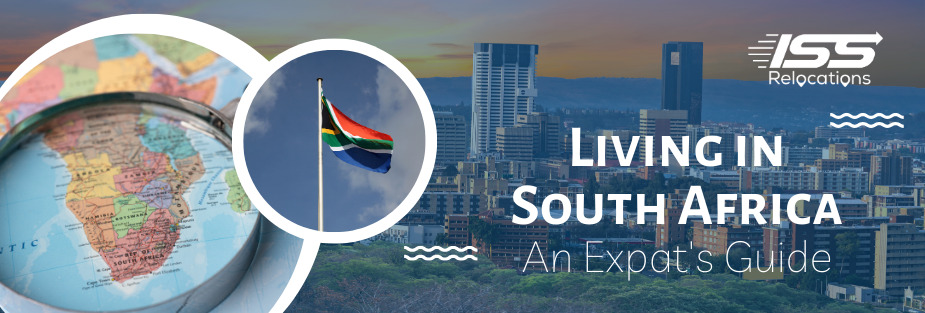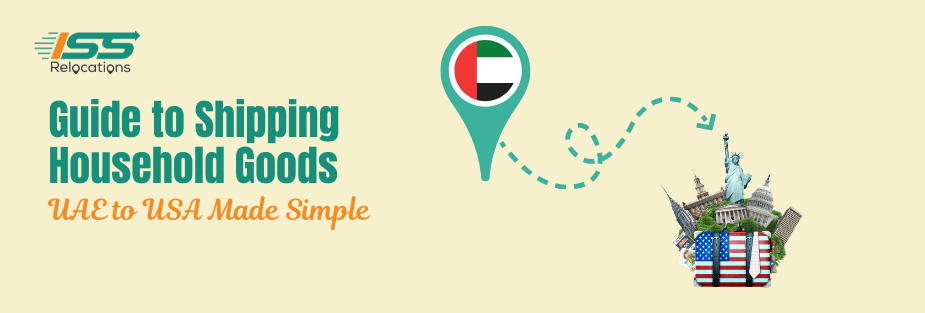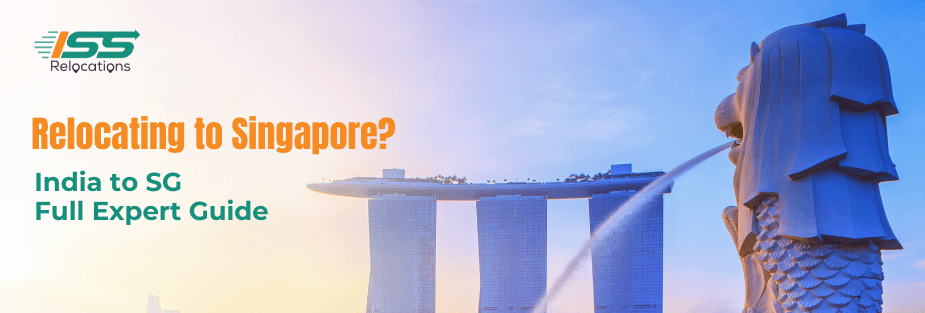
Living in South Africa – An Expat’s Guide
The Allure of Living in South Africa
Living in South Africa offers a unique blend of natural beauty, cultural diversity, and modern amenities that attract expats from around the world. The country boasts stunning landscapes, from the iconic Table Mountain to the vast savannas teeming with wildlife. South Africa’s vibrant cities, such as Johannesburg and Cape Town, provide a mix of historical richness and contemporary living, making it a captivating destination for those seeking new experiences.
South Africa’s multicultural society is a mosaic of different traditions, languages, and customs, offering a rich and varied lifestyle. Whether you are drawn to the bustling urban life or the tranquility of rural areas, living in South Africa has something for everyone. For expats planning a move, ISS Relocations offers comprehensive services to ensure a smooth and hassle-free transition, making the process of settling into your new home much easier.
Understanding South African Culture and Society
South Africa is known for its “Rainbow Nation” identity, reflecting its diverse population and multicultural heritage. This diversity is evident in the country’s 11 official languages, with English being widely spoken and used in business and education. Understanding and respecting this cultural plurality is essential for expats living in South Africa.
Social interactions in South Africa often blend traditional customs with modern practices. For instance, greetings are an important part of daily life, with a handshake being the most common form of greeting. In some communities, more traditional forms of greeting, such as a hug or a kiss on the cheek, may also be observed.
The country’s rich cultural scene includes music, dance, art, and literature, influenced by its complex history and various ethnic groups. Events like the Cape Town International Jazz Festival and the National Arts Festival in Grahamstown showcase this vibrant cultural tapestry. Engaging with these cultural elements can greatly enhance your experience of living in South Africa.
Expats should also be aware of South Africa’s social dynamics, including its history of apartheid and ongoing efforts towards reconciliation and equality. Being mindful and respectful of these issues is crucial for fostering positive relationships and integrating into the local community.
Cost of Living in South Africa
The cost of living in South Africa is relatively affordable compared to many Western countries, making it an attractive option for expats. However, costs can vary significantly depending on the city and lifestyle. Housing is one of the major expenses, with prices differing greatly between urban centers and rural areas.
In major cities like Johannesburg, Cape Town, and Durban, expats can find a range of housing options from luxury apartments to more modest accommodations. Rent prices in these cities can be high, especially in popular neighborhoods. On the other hand, smaller towns and rural areas offer more affordable housing, though they may lack some of the amenities and conveniences of city living.
Food and groceries in South Africa are reasonably priced, with local produce and goods being very affordable. Dining out is also relatively cheap, allowing expats to enjoy a variety of cuisines and dining experiences. Street markets and local shops often offer fresh produce at lower prices than supermarkets.
Transportation costs can vary, with options including public transport, private cars, and ride-sharing services. Public transportation in major cities is improving, with options like buses and trains available, though many expats prefer the convenience of owning a car. Fuel prices are moderate, but owning a vehicle comes with additional costs such as insurance and maintenance.
Healthcare and Medical Services
South Africa has a two-tier healthcare system comprising both public and private services. While public healthcare is available and often affordable, it can be under-resourced and crowded. For this reason, many expats opt for private healthcare, which offers higher standards of service and shorter waiting times.
Private healthcare in South Africa is of high quality, with many hospitals and clinics equipped with modern facilities and staffed by well-trained medical professionals. However, this comes at a higher cost, making health insurance a crucial consideration for expats living in South Africa.
Health insurance plans can vary widely, so it’s important to choose a plan that covers your specific needs. Some international health insurance providers offer plans tailored for expats, ensuring comprehensive coverage that includes access to private healthcare facilities.
To stay healthy and safe, expats should be aware of local health issues and take necessary precautions. This includes staying updated on vaccinations, practicing good hygiene, and taking preventive measures against diseases like malaria if living in or visiting affected areas.
Ready To Live in South Africa?
Begin Your Stress-Free Relocation Journey Today – Request A Quote Now!
Navigating the South African Job Market
Living in South Africa presents diverse employment opportunities across various sectors. The country’s key industries include mining, manufacturing, agriculture, finance, and services, with a growing tech industry. Johannesburg, known as the economic hub, offers numerous opportunities in finance and business services, while Cape Town is recognized for its tech startups and creative industries.
Expats seeking employment should familiarize themselves with the local job market and regulations. Securing a work permit or visa is essential. The Critical Skills Work Visa is popular among expats, targeting professionals in sectors with skill shortages. It’s important to start the visa application process early to ensure all documentation is in order.
Professional networks and resources can significantly aid in job hunting. Websites like LinkedIn, local job portals, and recruitment agencies are valuable tools. Additionally, attending industry events and joining professional groups can provide networking opportunities and insights into the local market.
Education and Schools in South Africa
For expats with children, education is a crucial consideration when living in South Africa. The country offers a range of educational options, including public, private, and international schools. Public schools follow the national curriculum, with some offering instruction in English, Afrikaans, or other local languages.
Private schools often provide higher quality education, with smaller class sizes and better facilities. Many private institutions follow the South African curriculum, while some offer international programs like the International Baccalaureate (IB) or British GCSE and A-Levels. These schools can be expensive, so budgeting for school fees is important.
International schools cater specifically to the expat community, offering curricula from various countries, such as the American or British systems. These schools ensure that children receive an education that aligns with what they would receive back home, easing the transition and potential future relocations.
When choosing a school, consider factors like location, curriculum, extracurricular activities, and language of instruction. Visiting schools and meeting with staff can help make an informed decision. The support of ISS Relocations can be invaluable in navigating these choices and ensuring a smooth enrollment process.
Exploring South African Cities
Living in South Africa means experiencing the unique character of its major cities. Johannesburg, the largest city, is the economic powerhouse, offering vibrant cultural scenes, shopping, and dining experiences. Key attractions include the Apartheid Museum, Nelson Mandela Square, and the bustling neighborhoods of Maboneng and Sandton.
Cape Town, known for its stunning natural beauty, is a top destination for expats. The city is famous for Table Mountain, the V&A Waterfront, and beautiful beaches. Its diverse neighborhoods, like Camps Bay and Constantia, offer a range of living environments, from beachfront properties to leafy suburbs.
Durban, with its warm climate and beautiful coastline, is a hub for beach lovers and surfers. The city boasts attractions like the Golden Mile, uShaka Marine World, and vibrant markets. Durban is also known for its rich cultural heritage and delicious Indian cuisine.
Each city offers distinct lifestyle options and amenities. Whether you prefer the hustle and bustle of Johannesburg, the scenic beauty of Cape Town, or the coastal charm of Durban, living in South Africa provides a variety of experiences to suit different preferences.
Safety and Security Tips
Safety is a common concern for expats living in South Africa. While the country has higher crime rates compared to some other nations, taking precautions can significantly enhance personal security. Understanding the local safety landscape and adhering to common safety practices are crucial.
When choosing a place to live, research neighborhoods carefully. Gated communities and security estates offer higher levels of safety and are popular among expats. Installing security systems, including alarms and cameras, and employing private security services can also enhance safety at home.
Being vigilant and aware of your surroundings is essential. Avoid walking alone at night, especially in unfamiliar areas. Using reputable transportation services and keeping car doors locked while driving are simple yet effective measures.
Engaging with the local community and forming support networks can provide additional safety and security. Many expat communities offer resources and advice on staying safe. ISS Relocations can also provide valuable insights and assistance in finding secure living arrangements and navigating local safety practices.
Leisure and Recreation
Living in South Africa offers a plethora of leisure and recreational activities for expats to enjoy. The country’s diverse landscape provides ample opportunities for outdoor adventures. From hiking in the Drakensberg Mountains to exploring the world-renowned Kruger National Park, nature enthusiasts will find endless options. Beaches along the coastlines of Cape Town, Durban, and the Eastern Cape are perfect for surfing, swimming, and sunbathing.
For sports fans, rugby, cricket, and soccer are immensely popular, with numerous local and international matches to attend. The country’s rich cultural scene includes music festivals, theater performances, and art exhibitions. The Cape Town International Jazz Festival and the National Arts Festival in Grahamstown are notable events that draw large crowds.
Dining out is another delightful aspect of living in South Africa. The country’s culinary scene is a fusion of traditional African, Dutch, Indian, and Malaysian influences. From high-end restaurants in major cities to local markets offering traditional dishes like bobotie and biltong, there is something to satisfy every palate. Shopping ranges from modern malls to unique local markets where you can find handmade crafts and souvenirs.
Practical Tips for Everyday Life
Adapting to everyday life when living in South Africa involves understanding various practical aspects. Banking and financial services are modern and accessible, with numerous local and international banks operating in the country. Setting up a bank account is straightforward, and most banks offer online and mobile banking services.
Utilities such as water, electricity, and internet services are generally reliable, although it’s advisable to be aware of load shedding schedules, as power outages can occur. When choosing an internet service provider, options include fiber, ADSL, and mobile broadband, with varying levels of speed and reliability.
Transportation varies by region. In major cities, public transport options include buses, trains, and minibus taxis. However, many expats prefer the convenience and safety of owning a car. South Africa drives on the left-hand side of the road, and obtaining a local driver’s license may be necessary for long-term residents. Ride-sharing services like Uber are also widely available in urban areas.
Wrapping Up
Living in South Africa can be a deeply rewarding experience, offering a blend of cultural richness, natural beauty, and modern amenities. With its diverse cities, friendly communities, and vibrant lifestyle, South Africa provides a unique environment for expats to thrive. Ensuring a smooth transition involves understanding the local culture, being aware of safety practices, and making informed decisions about housing, education, and healthcare.
For those considering a move, ISS Relocations offers comprehensive services to assist with every aspect of the relocation process, from finding suitable accommodation to navigating visa requirements and setting up essential services. Their expertise ensures that your move is as seamless and stress-free as possible, allowing you to focus on enjoying your new life in South Africa.
Plan Stress-free Move with Top Moving Company in UAE - ISS Relocations

Frequently Asked Questions
What is the cost of living in South Africa for expats?
The cost of living in South Africa is relatively affordable. Housing, food, and transportation costs vary by city, with urban areas generally being more expensive than rural regions.
How safe is it to live in South Africa?
Safety can be a concern, but by choosing secure neighborhoods, being vigilant, and taking precautions, expats can enjoy a safe living environment in South Africa.
What are the healthcare options for expats in South Africa?
Expats have access to both public and private healthcare. Private healthcare is recommended due to its higher standards and shorter waiting times, and health insurance is essential.
How much money do you need to live a good life in South Africa?
To live comfortably, an individual needs approximately ZAR 20,000–30,000 per month, while families may require ZAR 40,000 or more. ISS Relocations helps you manage your transition and settle into living in South Africa with ease.
What is the quality of life in South Africa?
South Africa offers a high quality of life with beautiful landscapes, rich culture, and modern amenities. ISS Relocations ensures a smooth relocation experience, helping you enjoy all the benefits of living in South Africa.
What are the advantages of foreigners living in South Africa?
Foreigners benefit from affordable living costs, diverse culture, and a welcoming expat community. ISS Relocations provides tailored services to help you make the most of living in South Africa.
Moving Company - Recent Blog
Stay informed and prepared for your next move with our latest blogs on moving services in the UAE. From expert packing tips to international relocation guides, ISS Relocations brings you up-to-date insights to make your moving experience smoother, safer, and stress-free.










